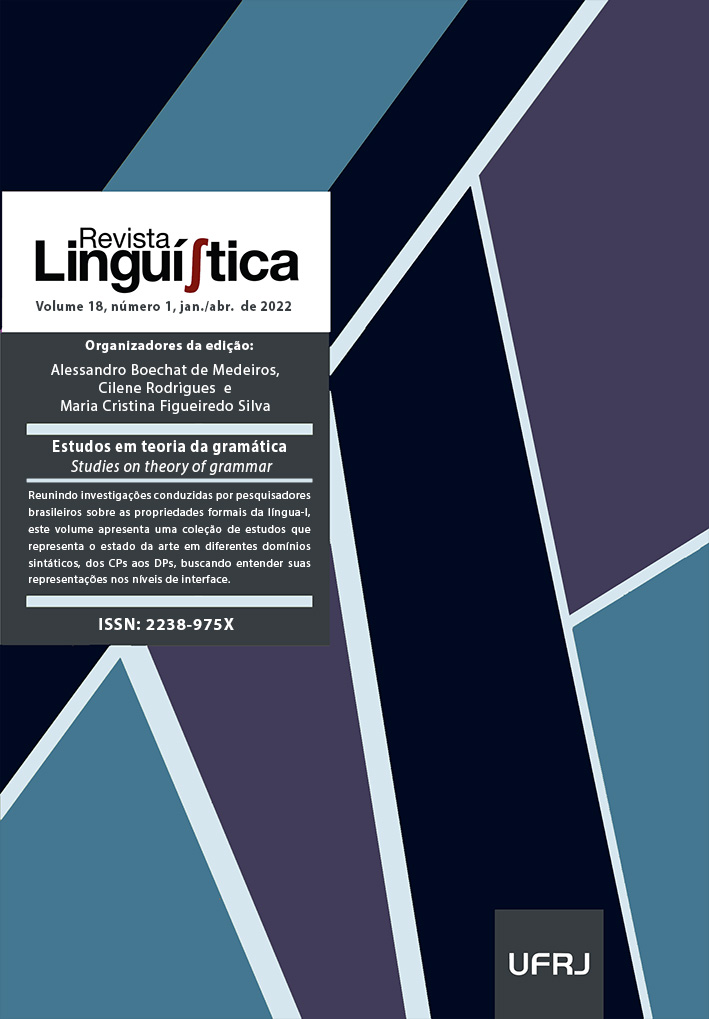The role of vagueness in adjective understanding
DOI:
https://doi.org/10.31513/linguistica.2022.v18n1a52826Keywords:
vagueness, degree semanticsd, semantic experiment, adjectives, Brazilian PortugueseAbstract
Vagueness is a typical feature of natural language meaning. Though pervasive, vagueness has been identified with one particular class of adjectives: the gradable adjectives called relative. The study of adjective denotations gave rise for long-standing puzzles (Partee, 2007). Kamp (1975) showed that many adjectives that at first looked like nonintersective were instead intersective but context dependent, i.e., vague. A degree theory of vagueness (Kennedy; McNally, 2005) evolved to a grammar of vagueness. All gradable adjectives are context-dependent, but some are absolute, and some are relative, given the different types of standards they require. Among the absolute, there are yet two classes: minimal standard and maximal standard adjectives. So, from a degree semantics view, the truth conditions assigned in a context of utterance to a description containing a degree adjective will not be always the same. Some empirical research has been conducted about the varieties of standards of comparison, but not so many in Brazilian Portuguese. We conducted a survey on the subject. The results reinforce the importance of vagueness for the adjective semantics.Downloads
Published
Issue
Section
License
Authors who publish in the Revista Linguí∫tica agree with the following terms:
The authors maintain their rights, ceding to the journal the right to first publication of the article, simultaneously submitted to a Creative Commons license permitting the sharing with third-parties of published content as long as it mentions the author and its first publication in the Revista Linguí∫tica.
Authors may enter into additional agreements for the non-exclusive distribution of their published work (for example, posting in online institutional or non-profit repositories, or book chapters) so long as they acknowledge its initial publication in the Revista Linguí∫tica.

The journal Revista Linguí∫tica is published by the Post-Graduate program in Linguistics of UFRJ and employs a Creative Commons - Attribution-NonCommercial 4.0 International (CC-BY-NC).









